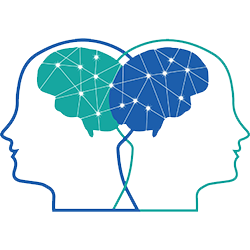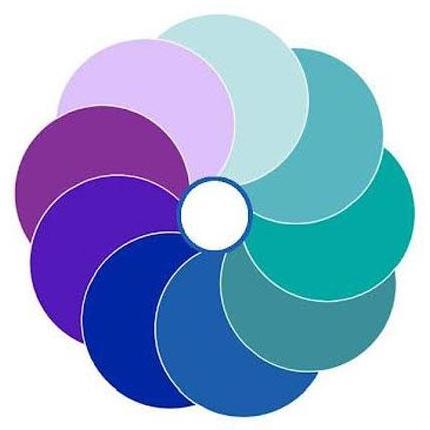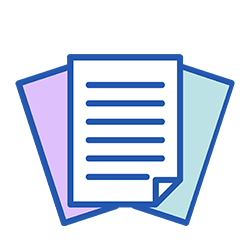ABOUT MENTAL HEALTH
Millions of people in the U.S. are affected by mental illness each year.
- 1 in 5 U.S. adults experience mental illness each year
- 1 in 20 U.S. adults experience serious mental illness each year
- 1 in 6 U.S. youth aged 6-17 experience a mental health disorder each year
- 50% of all lifetime mental illness begins by age 14, and 75% by age 24
- Suicide is the second leading cause of death among people aged 10-14
A mental health condition is not the result of one event. Research suggests multiple, linking causes. Genetics, environment and lifestyle influence whether someone develops a mental health condition. A stressful job or home life makes some people more susceptible, as do traumatic life events. Biochemical processes, circuits and basic brain structure may play a role, too.
None of this means that the person is broken or that anyone did anything “wrong.” Mental illness is no one’s fault. For many people, recovery — including meaningful roles in social life, school and work — is possible, especially when treatment begins early and the person plays a strong role in their own recovery process. --National Alliance on Mental Illness
INTERSECTIONALITY WITH BRAIN INJURY
Brain injury can create mental health problems in children, youth and adults and it can worsen pre-existing issues, even with a concussion level injury (mild). A mild injury does not necessarily mean a mild outcome. As high as 75% of the people looking for mental health and substance use treatment also have a brain injury. Six months to one year following a brain injury, one third will experience a mental health problem and that number will grow over time. “People with brain injury of any severity have 2 to 4 times the risk of attempting or having a death by suicide.”
Common mental health issues following brain injury in childhood include “depression, anxiety, personality changes, psychosis/paranoia, secondary attention deficit/hyperactivity disorder, oppositional defiant disorder, post-traumatic stress disorder and mania/hypomania.”1 Adults with brain injury are more likely than those without an injury to experience “mood disorders, anxiety disorders, psychotic disorders and substance abuse disorders,1 as well as personality changes, decreased self-awareness, suicidality and socially inappropriate behavior.
People with brain injuries often have cognitive and physical changes in addition to the mental health changes listed above. Cognitive changes can include decreased attention, memory, self-awareness (including awareness of changes and their impact), judgment, decision-making and reasoning, as well as increased impulsivity. They can have difficulty picking up on social cues and may act inappropriately. Sometimes symptoms are unseen and therefore untreated. Sometimes symptoms are seen but misattributed to other things, like lack of interest in treatment or purposeful non-adherence.
People seeking mental health treatment should be screened for a lifetime history of brain injury and provided with accommodations that fit their symptoms. Voluntary cognitive screening may also be offered.
Administration for Community Living's Behavioral Health Guide: Considerations for Best Practices for Children, Youth, and Adults with TBI contains, among other useful information, evidence-based MH treatments for people with brain injury.
TENNESSEE DEPARTMENT OF MENTAL HEALTH AND SUBSTANCE ABUSE SERVICES (TDMHSAS)
TDMHSAS, through its four (4) Regional Mental Health Institutes and contracted relationships with more than 300 providers across the state, delivers a full array of prevention, early intervention, treatment and recovery services for Tennesseans living with or at risk of developing mental illness or substance use issues. In all, our programs reach about 750,000 Tennesseans a year with our largest direct treatment services provided to uninsured Tennesseans through our Behavioral Health Safety Net and substance use Continuum of Care.
TDMHSAS contracts for statewide mobile crisis services for adult and children and youth. The department provides emergency inpatient psychiatric services to about 8,000 people a year through our Regional Mental Health Institutes located in Nashville, Memphis, Chattanooga, and Bolivar. TDMHSAS also serves as the licensing authority for all behavioral health providers with more than 1,850 licensed sites statewide. Our licensure database search is available at this link.
The department has a highly successful program to certify peers to use their lived experience of mental health and/or substance use challenges to help others. There are currently more than 1,000 Certified Peer Recovery Specialists who are active in their certification and are helping others. The success of this program has produced certifications for young adults and for family members. To learn more about TDMHSAS services: TN.gov/behavioral-health
TennCare
TennCare is Tennessee’s managed care Medicaid program, which provides health insurance coverage to certain groups of low-income individuals such as pregnant women, children, parents or caretaker relatives of minor children, older adults, and adults with disabilities.
To learn more about applying for TennCare: TennCare (tn.gov)
Learn more about behavioral health services provided by TennCare contracted managed care organizations:
Tennessee START Assessment & Stabilization Teams (TN START AST) are a statewide resource for individuals with intellectual and developmental disabilities who have complex behavioral or mental health needs. TN START AST is a collaboration between the Tennessee Department of Intellectual and Developmental Disabilities (DIDD) and the Center for START Services. START (Systematic, Therapeutic, Assessment, Resources & Treatment) is a comprehensive model of service supports that optimizes independence, treatment, and community living for individuals with IDD and behavioral health needs.
TN START AST provides prevention and stabilization through crisis response, stabilization planning, training and education, consultation, and formalized partnerships. TN START AST is available in all counties statewide and consists of five teams, divided into five multiple-county regions across Tennessee (Memphis, Jackson, Chattanooga, Nashville, and Knoxville). Each region consists of a team of Assessment & Stabilization Facilitators (ASF) and a supervising Assessment & Stabilization Manager (ASM). All team members will utilize evidence-based practices and be trained and certified by the Center for START Services.
SCREENING TOOLS
- Mental Health Screening Tools: depression, anxiety, alcohol and substance use, bipolar, youth mental health, youth mental health (for parents), PTSD, psychosis.
- Mental Health America has additional screening tools in the areas of Postpartum Depression, Schizophrenia, Eating Disorders, ADHD, Addiction and Self-Injury.
- Columbia Suicide Severity Scale
CRISIS INTERVENTION TOOLS
988 Suicide & Crisis Lifeline or you can text to 988; 988lifeline.org to chat with someone
- Veterans Crisis Line: Dial 988, then Press 1; or text 838255
- Blog: How to Help Someone in Crisis
- Warning Signs & Symptoms
WEBSITES
- Guideline for Emergency Responses to People with Behavioral Health or Other Disabilities
- TeenMH.org – resources and support specifically for teens.
- Recovery Within Reach – housing options for people with Mental Health challenges
SUPPORT GROUPS
- NAMI Support-Groups
- TN TBI Support Groups - for more information regarding virtual and in-person support groups call the TBI Hotline at 1-800-882-0611.
TENNESSEE BRIGHTER FUTURES GROUPS THAT ARE A PART OF THIS SYSTEM OF CARE
- TN Dept. of Mental Health & Substance Abuse Services
- Mental Health America of the MidSouth
- National Alliance on Mental Illness – TN
- TN Voices
- TN Assoc. of Mental Health Organizations
- TN Co-Occurring Disorders Collaborative
- TN Mental Health Consumers Association
- Suicide Prevention Network
- TN Dept. of Health Suicide Prevention Program
- TN Mental Health Assoc. of East TN
Return to this page after the meeting date for downloadable resources.
Topic: Suicide Prevention
Date: Thursday July 10, 2025
Time: 1:00 - 2:30 PM Central Time (US and Canada)
Speaker Details Coming Soon
Join Zoom Meeting
https://us02web.zoom.us/j/88398457350?pwd=My9hekFKbndNblBnZ0VLcFhKSWJ0UT09
Meeting ID: 883 9845 7350
Passcode: 807623
One tap mobile
+16468769923,,88398457350# US (New York)
+16469313860,,88398457350# US
Dial by your location
• +1 646 876 9923 US (New York)
• +1 646 931 3860 US
• +1 309 205 3325 US
• +1 312 626 6799 US (Chicago)
• +1 301 715 8592 US (Washington DC)






